Sat-Thu: 10AM - 7PM
+88-017-7845-7773
All Kind of Vegetables for Export..........
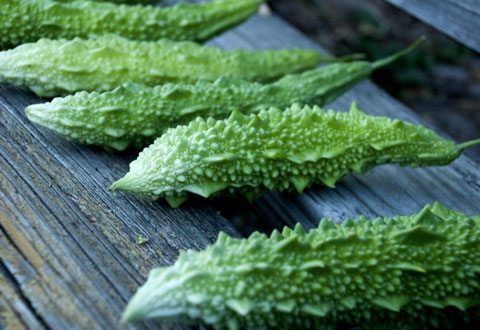
Long Kind Bitter gourd is a rich source of vitamins and minerals. It contains iron, magnesium, potassium and vitamins like A and C. It contains twice the calcium of spinach and beta-carotene of broccoli. Various anti-oxidants and anti-inflammatory compounds are present in bitter gourd.
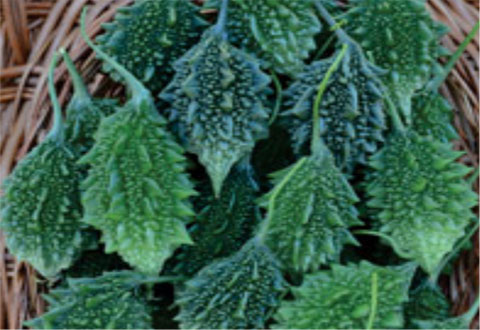
Small Kind Bitter gourd is a rich source of vitamins and minerals. It contains iron, magnesium, potassium and vitamins like A and C. It contains twice the calcium of spinach and beta-carotene of broccoli. Various anti-oxidants and anti-inflammatory compounds are present in bitter gourd.
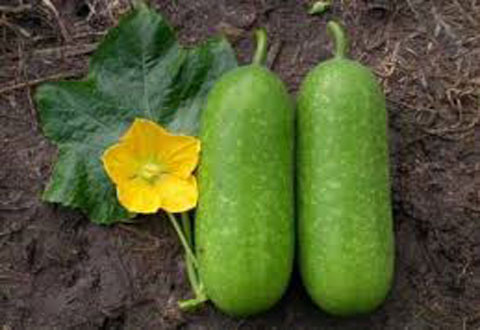
Ash gourd's low calorie, high fiber, and high water contents may help improve your digestion and promote a healthy body weight. For instance, research suggests that low calorie, water-dense foods like ash gourd may help people lose weight ( 5 ). Moreover, ash gourd is a good source of soluble fiber.
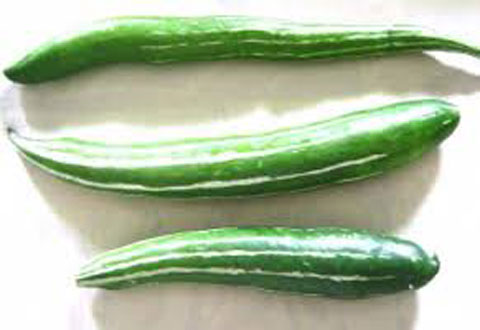
Snake gourd is rich in Vitamins A, B and C, Potassium, Magnesium, Calcium, Iodine, Iron and the presence of antibiotic qualities in the vegetable is considered to boost immunity. The juice applied to the scalp can remove dandruff. The juice can clean blood vessels and improve circulation.
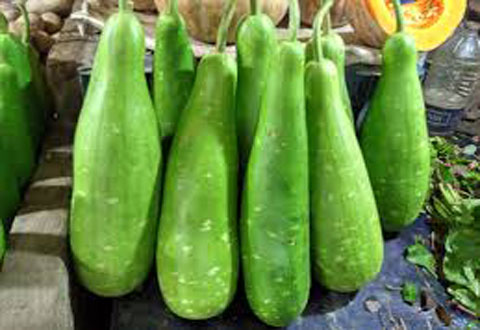
It is advisable to consume cooked bottle gourd because raw vegetable could harm the stomach and digestive system, causing ulcers and rarely multi-organ damage. The bitter taste should let people know that it is poisonous. Drinking uncooked bottle gourd juice or eating raw bottle gourd is dangerous to health.
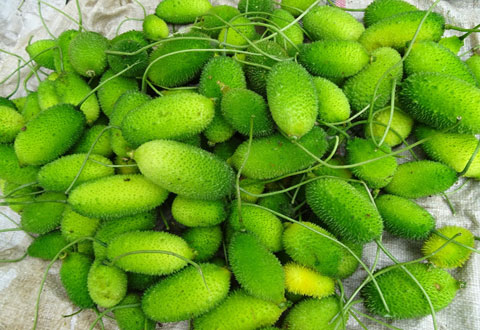
It helps to keep the skin healthy as it contains various flavonoids such as beta carotene, lutein and zeaxanthins that act as protective scavengers. “It also has anti-ageing properties as it is blessed with antioxidants that fight free radicals the body has due to ageing and pollution,” says the nutritionist.
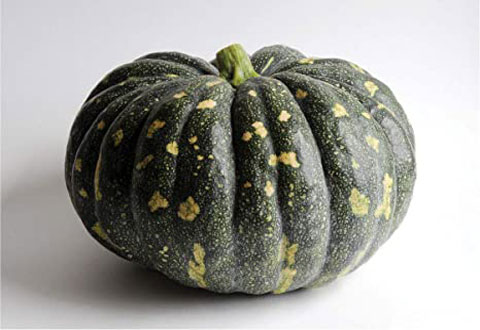
Pumpkin is a great source of potassium and beta-carotene, which is a carotenoid that converts to vitamin A. It also contains some minerals including calcium and magnesium, as well as vitamins E, C and some B vitamins.
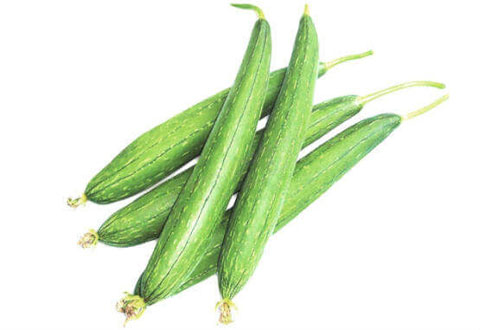
Sponge gourd is quite lower in immersed fats as well as calories. It is contains high amounts of dietary fiber, vitamin C, riboflavin, zinc, thiamine, iron, and magnesium. Some of the health preferences linked to the Sponge gourd appears beneath: Phenomenal Blood Purifier.
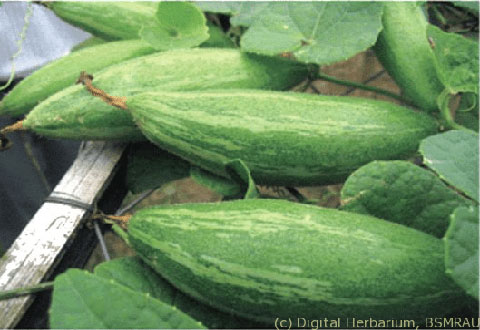
Pointed gourd is a good source of vitamins and minerals. It is a good source of carbohydrates, vitamin A, and vitamin C. It also contains major nutrients and trace elements (magnesium, potassium, copper, sulfur, and chlorine) which are needed in small quantities, for playing essential roles in human physiology.
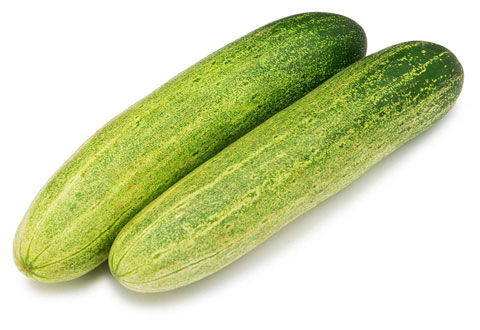
Long Cucumbers are packed with them. In just a single cup of cucumber slices, you'll get 14% to 19% of the vitamin K you need for the day. You'll also get vitamins B and C along with minerals like copper, phosphorus, potassium and magnesium.
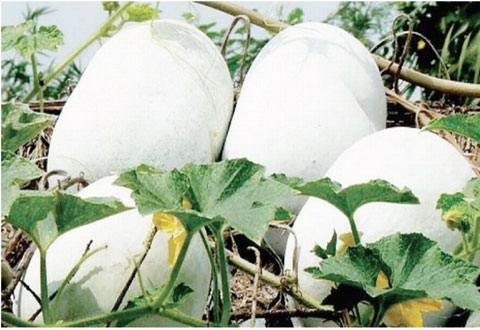
The winter melon is enriched with dietary fiber, which is essential for digestion. It prevents gastrointestinal problems including cramping, bloating hemorrhoids and general stomach issues. Dietary fiber is known to reduce cholesterol levels, which might cause severe health problems.
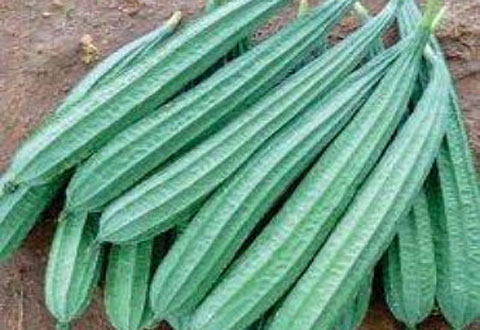
Some of the health benefits are listed below. Ridge gourd is extremely rich in dietary fibre and enriched with all the vital elements that include Vitamin-C, zinc, iron, riboflavin, magnesium, thiamine and traces of another minerals. It is low in saturated fat, cholesterol and calories that aids in weight loss.
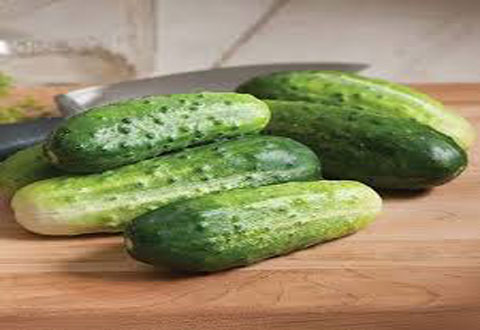
Cucumbers contain magnesium, potassium, and vitamin K. These 3 nutrients are vital for the proper functioning of the cardiovascular system. In taking magnesium and potassium can lower down blood pressure. A regular intake of cucumber has been found to decrease bad cholesterol and blood sugar levels as well.
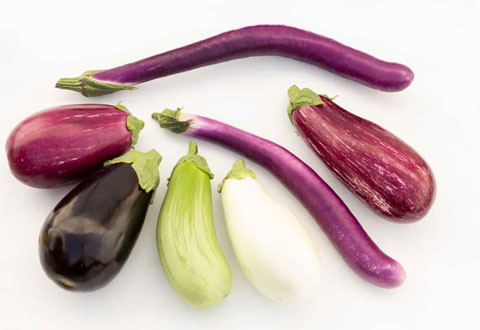
The bottom line, if the level of inflammation in the body is low, one can enjoy eggplant and nightshades in moderation. But if you suffer from any chronic inflammatory conditions you might consider limiting your consumption of eggplant until the causes of inflammation resolved.
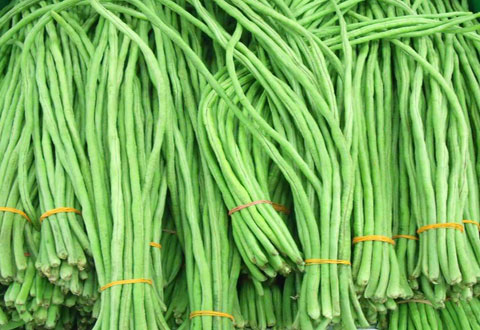
Health Benefits: They are high in fiber, protein, potassium, vitamin K, thiamine, folate, and manganese, and are low in calories and saturated fat. Fun Facts: The fruit are very small and round, about 1 ½” in diameter, the skin is swirled green and white with no need to peel.
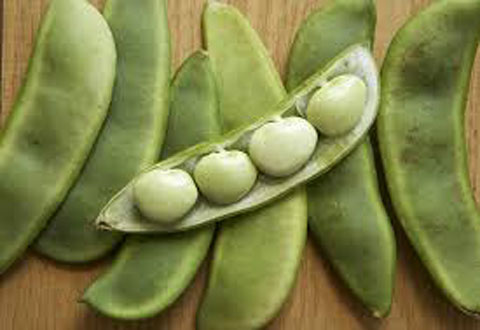
Hyacinth beans contain a sufficient quantity of potassium which strengthens muscles and lessens muscle cramps. Minerals such as selenium, manganese and zinc also help tackle lung and respiratory diseases. This vegetable is a great mood booster as it contains amino acids which help to balance hormones.
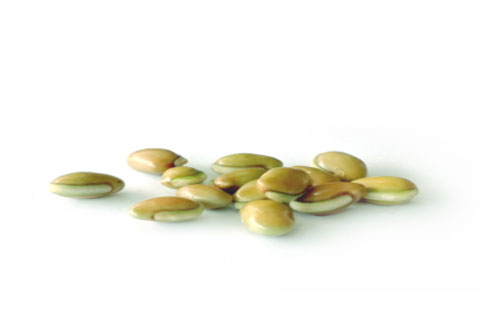
The seeds, pods, leaves, flowers, and roots are eaten. The seeds are used as medicine. People take hyacinth beans by mouth to prevent pregnancy and for diarrhea and stomach disorders.
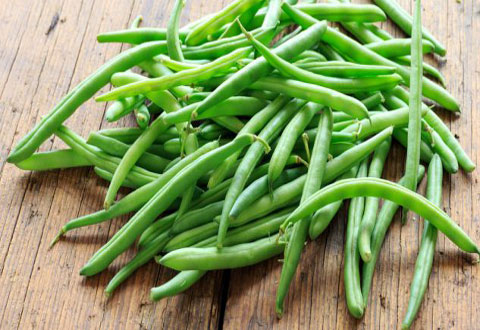
French beans are are a fantastic source of vital nutrients, particularly vitamins C and A. They also include a number of minerals, including iron, calcium and magneisum. They're also low in calories and contain no saturated fat. Plus, if that wasn't enough, they're rich in dietary fibre – ideal for good gut health.
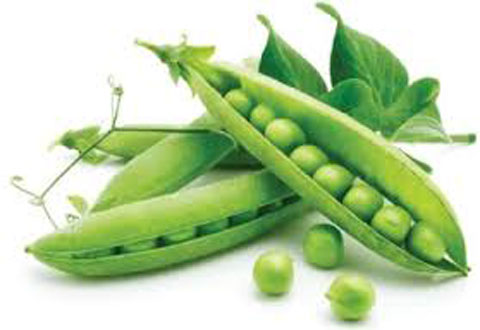
Compared to other vegetables such as carrots, peas have higher levels of protein. In addition, peas are a good source of dietary fiber, Vitamin A, iron, folate, thiamin, Vitamin C and manganese. They also have a high level of Vitamin K. One of the health benefits of green peas is blood sugar control.
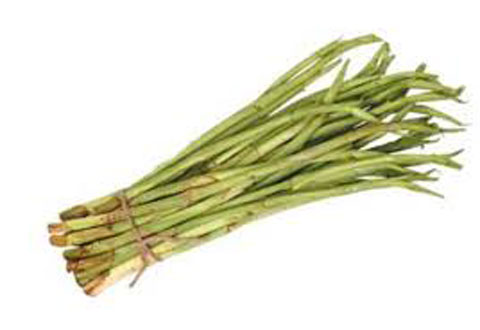
Taro stolon can also help reduce high blood pressure. Moreover, it protects the skin, prevents different types of cancer, increases blood circulation, prevents heart diseases, improves vision, boosts the immune system, and strengthens muscle and nerves.
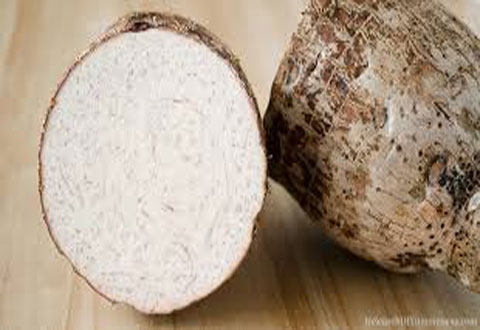
Taro, a starchy, white-fleshed root vegetable, has 30% less fat and more fiber than its cousin, the potato, plus lots of vitamin E.
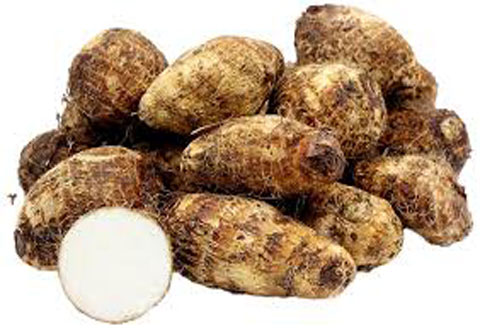
Cocoyam has better nutritional qualities than other root and tuber crops such as cassava and yam, with higher protein, vitamin and mineral content. A versatile staple, cocoyam can also be used as weaning food, while the leaves can be cooked as vegetable.
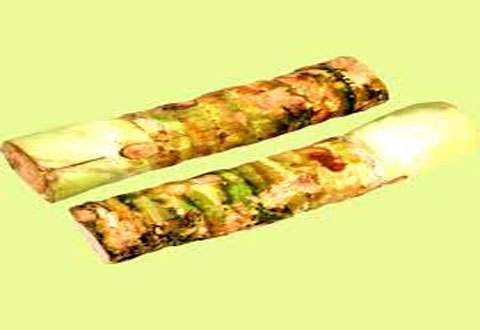
Optimum health: Weight gain: The good: This food is low in Sodium, and very low in Saturated Fat and Cholesterol. It is also a good source of Vitamin B6, Potassium and Copper.
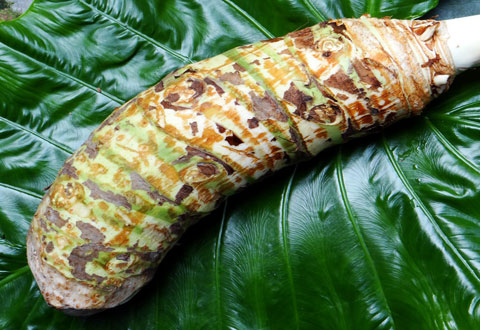
The giant taro leaves and stems are also eaten as a vegetable rich in vitamins. In the raw state, the giant taro is poisonous to humans if eaten in large quantities, until prolonged boiling removes the toxin calcium oxalate.
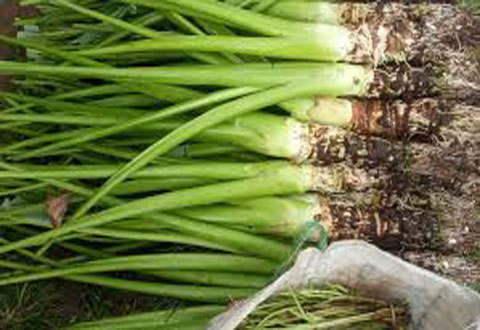
Aroid is the common name for members of the Araceae family of plants, sometimes known as the Philodendron or Arum family. The sometimes beautiful and sometimes bizarre combination of spathe and spadix known as the inflorescence, and sometimes referred to as a "flower", is a distinguishing feature of all aroids.
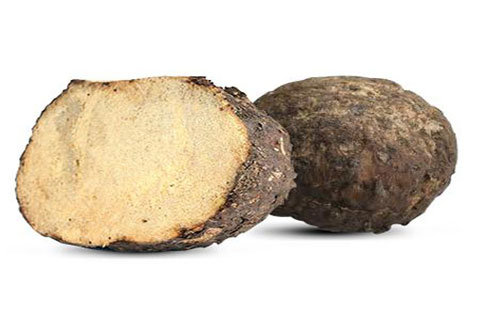
One animal study found that yam extract reduced food intake, suggesting that these tubers may help reduce appetite and improve weight loss. The fiber in yams may promote weight loss as well (28). Antimicrobial effects.
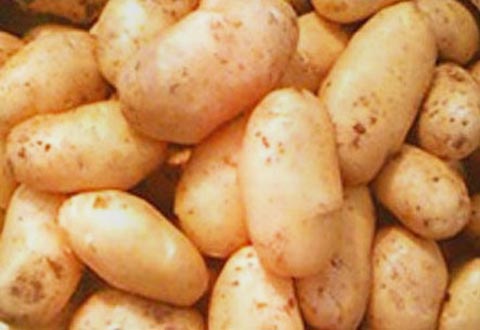
Eating one medium-size potato a day can be part of a healthy diet and doesn't increase cardio metabolic risk — the chances of having diabetes, heart disease or stroke — as long as the potato is steamed or baked, and prepared without adding too much salt or saturated fat, a study by nutritionists at The Pennsylvania.
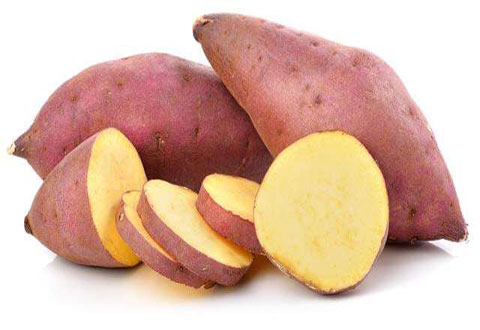
Sweet potatoes are a rich source of fibre as well as containing an array of vitamins and minerals including iron, calcium, selenium, and they're a good source of most of our B vitamins and vitamin C.
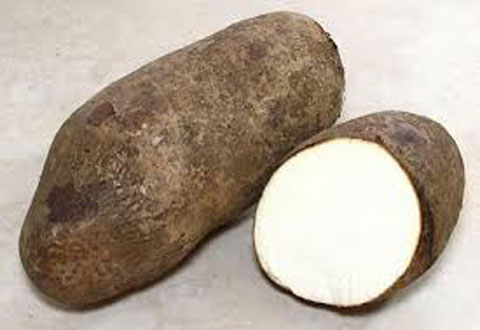
Diosgenin or wild yam is often promoted as a “natural alterative” to estrogen therapy, so you will see it used for estrogen replacement therapy, vaginal dryness in older women, PMS (premenstrual syndrome), menstrual cramps, weak bones (osteoporosis), increasing energy and sexual drive in men and women, and breast.
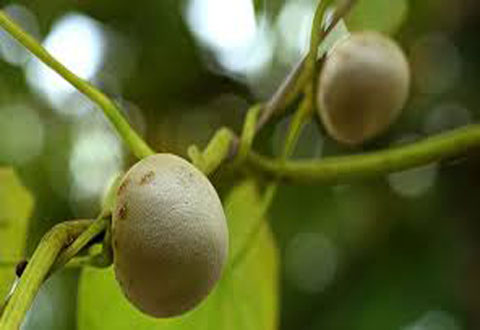
Air potato can quickly engulf native vegetation in natural areas, climbing high into mature tree canopies. It produces large numbers of bulbils (aerial tubers), which facilitate its spread and make it extremely difficult to eliminate because new plants sprout from even very small bulbils.
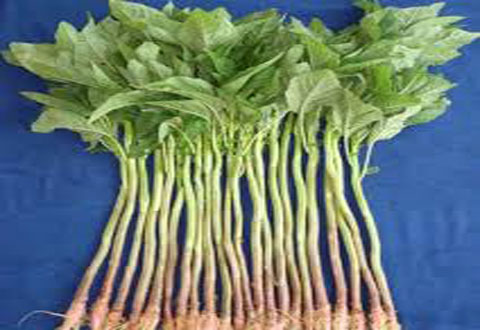
It is packed with carbohydrates, proteins, minerals and vitamins, and regular consumption helps in easing digestion, excessive menstruation and weight management. Since it is high in iron content and dietary fibre, it is good for anaemic patients, and reduces cholesterol and risks of cardiovascular diseases.
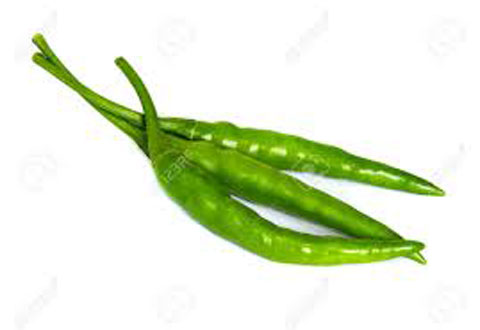
Green chillies have higher water content and zero calories which makes them a healthy choice for those who are trying to shed some pounds. Green chillies are a rich source of beta–carotene, antioxidants and endorrphins while red chilies consumed in excess can cause internal inflammation which results in peptic ulcers.
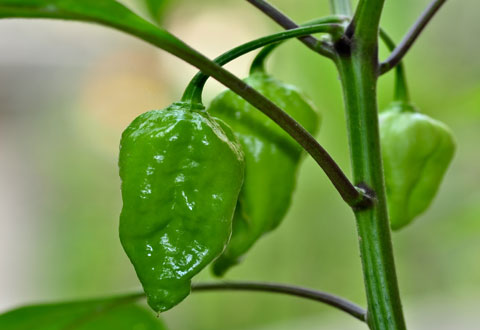
They are rich in vitamins, minerals, and various unique plant compounds. These include capsaicin, the substance that causes your mouth to burn. Capsaicin is linked to several health benefits, as well as adverse effects. On one hand, it may help promote weight loss and relieve pain when consumed regularly.
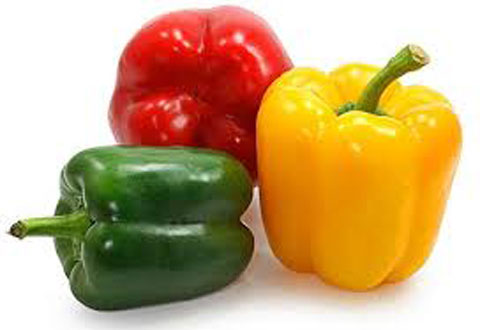
Forget an apple a day; a red capsicum will give you a massive Vitamin C boost for minimal calories. A rich source of carotenoids, the group of antioxidants known to play a powerful role in helping to down regulate a number of inflammatory pathways in the body.
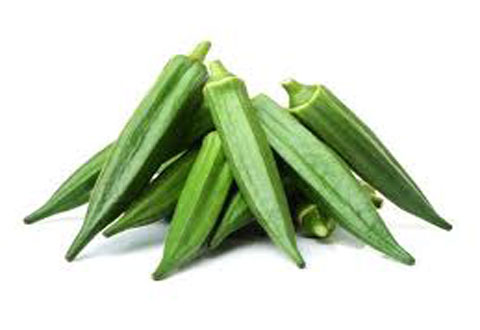
People with an elevated blood glucose level should definitely include okra in their daily diets. As okra is rich in fiber, it helps in improving insulin sensitivity and also aids in controlling and maintaining blood sugar levels in the body.
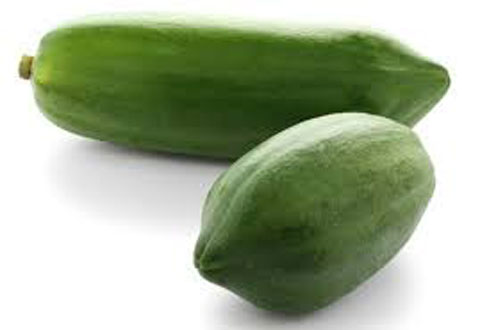
If the papaya is ripe, it can be eaten raw. However, unripe papaya should always be cooked before eating — especially during pregnancy, as the unripe fruit is high in latex, which can stimulate contractions (1). Papayas are shaped similar to pears and can be up to 20 inches (51 cm) long.
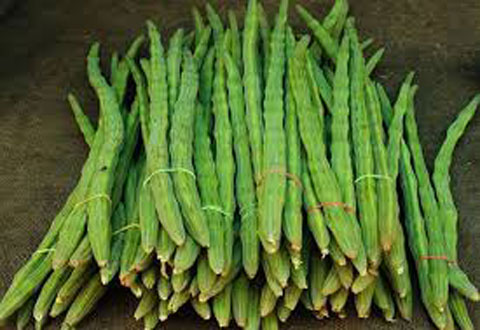
A study published in the American Journal of Neuroscience reveals that drumstick exhibited amazing aphrodisiac property and improves the testosterone levels, increasing sexual virality and libido. Furthermore, Ayurveda recommends including drumstick flowers to improve the sperm count and treat ED.
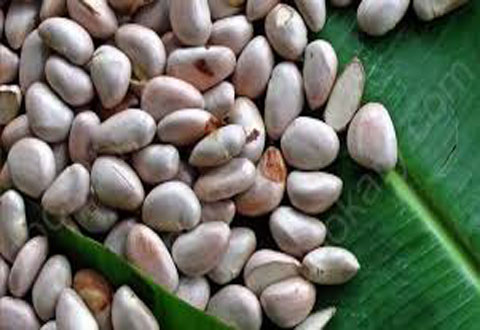
The seeds of the jackfruit can also be eaten and are said to taste like chestnuts. They are a rich source of carbohydrates and are served either roasted or boiled in water. Care must be taken to ensure that the seeds are properly prepared, for they may be poisonous.
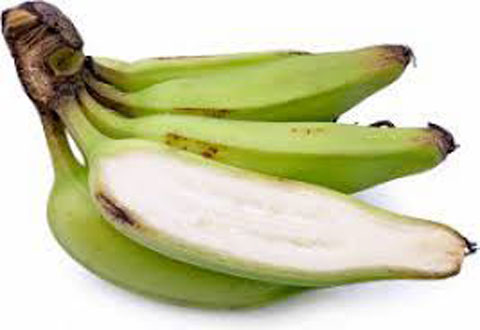
Cooked plantains are nutritionally very similar to a potato, calorie-wise, but contain more of certain vitamins and minerals. They're a rich source of fiber, vitamins A, C, and B-6, and the minerals magnesium and potassium. This hidden super food warrants a trip your local grocery.
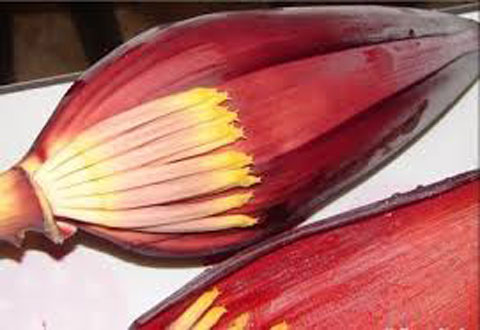
Therefore eating foods rich in potassium like yellow bananas and banana flower will maintain a normal level of sodium in blood and thus reduce and maintain a (normal or near- to- normal) blood pressure among hypertensive individuals.
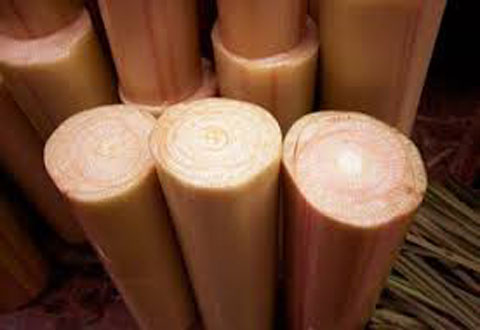
Banana stem is a rich source of fibre and helps in weight loss. Its high fibre content creates a feeling of satiation and hence, reduces the intake of food. It also helps ease constipation. Banana stem is rich in potassium and vitamin B6 just like the fruit.
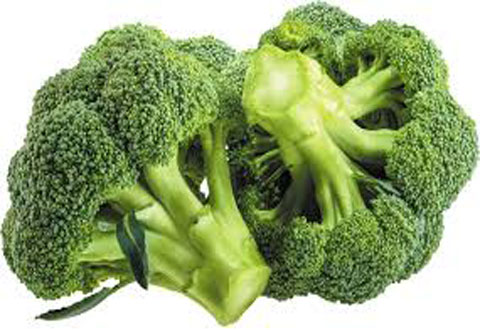
Broccoli is a good source of fibre and protein, and contains iron, potassium, calcium, selenium and magnesium as well as the vitamins A, C, E, K and a good array of B vitamins including folic acid.
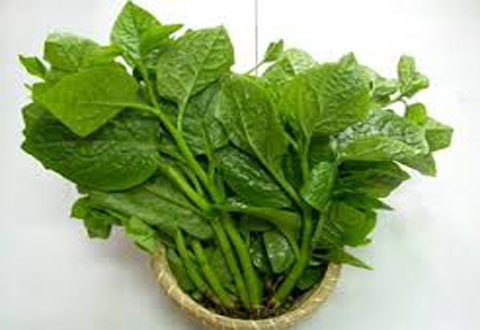
Spinach is rich in vitamins A, C and K, magnesium, iron and manganese. Eating this leafy green veggie may benefit eye health, reduce oxidative stress and reduce blood pressure levels among other health functions.
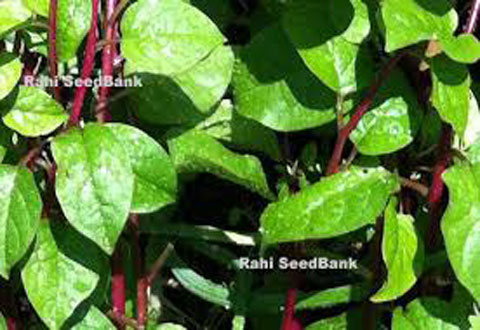
Spinach is rich in vitamins A, C and K, magnesium, iron and manganese. Eating this leafy green veggie may benefit eye health, reduce oxidative stress and reduce blood pressure levels among other health functions. Whether you like it or not, spinach is surely one veggie that you must include in your daily diet.
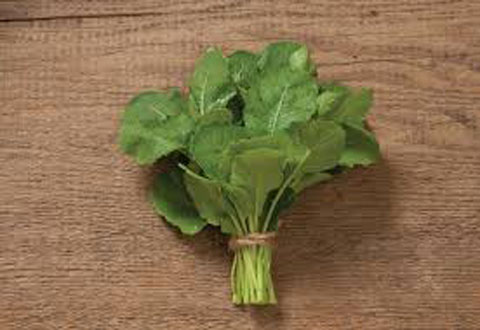
Mustard greens are rich in important plant compounds and micronutrients, specifically vitamins A, C, and K. As a result, eating them may have benefits for eye and heart health, as well as anticancer and immune-boosting properties.
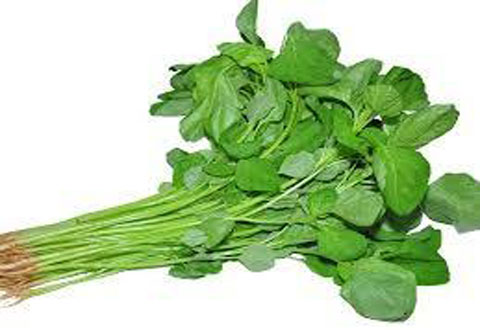
It is packed with carbohydrates, proteins, minerals and vitamins, and regular consumption helps in easing digestion, excessive menstruation and weight management. Since it is high in iron content and dietary fibre, it is good for anaemic patients, and reduces cholesterol and risks of cardiovascular diseases.
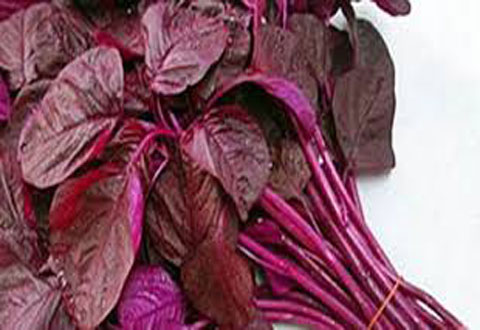
Amaranth is a nutritious, gluten-free grain that provides plenty of fiber, protein and micronutrients. It has also been associated with a number of health benefits, including reduced inflammation, lower cholesterol levels and increased weight loss.
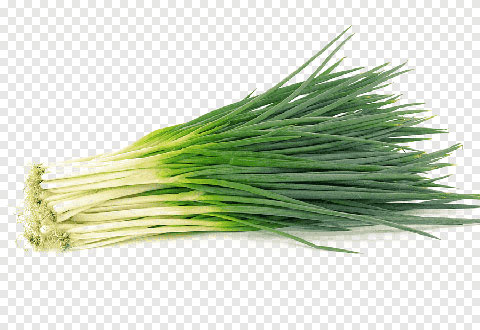
They are also a good source of dietary fibre and vitamins A and B6, thiamine, folate and minerals (potassium, copper, chromium, manganese, iron). Some research suggests that spring onions may lower cholesterol levels, decrease the risk of heart attacks and strokes and have antibacterial and antifungal properties.

Water lilies are rooted in the soil at the bottom of the lake, with their leaves and iconic flowers visible on the surface. Their abundance provides important benefits to the ecosystem. They create food and shelter for both aquatic and non-aquatic wildlife.
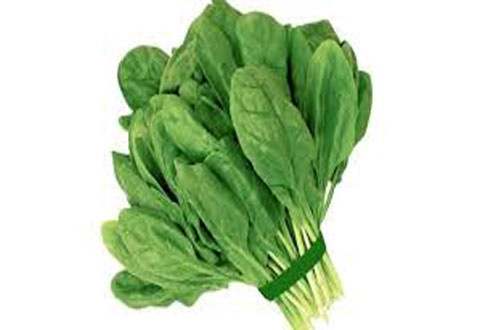
Spinach is rich in vitamins A, C and K, magnesium, iron and manganese. Eating this leafy green veggie may benefit eye health, reduce oxidative stress and reduce blood pressure levels among other health functions. Whether you like it or not, spinach is surely one veggie that you must include in your daily diet.
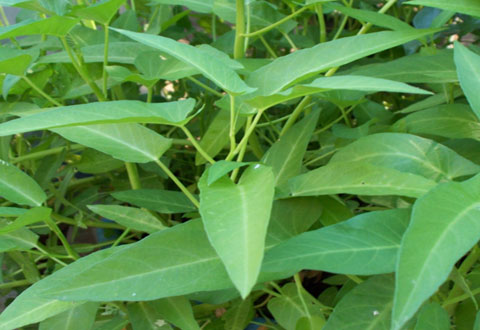
The benefits of kangkong for skin have been known for a long time. As stated earlier, this vegetable is a great source of vitamin A, vitamin C, carotenoids and lutein. These minerals are vital for a healthy and glowing skin. Consuming kangkong on a regular basis helps to maintain radiant and healthy skin.
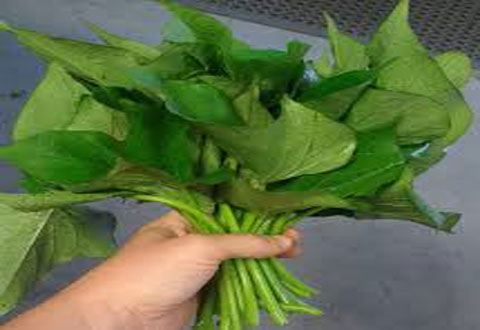
For starters, the leaves are an excellent source of antioxidants and contain high levels of vitamin A and C, as well as riboflavin, thiamin, folic acid and niacin. Sweet potato vine leaves also provide impressive amounts of fiber, along with calcium, magnesium, manganese, zinc, copper, potassium and iron.
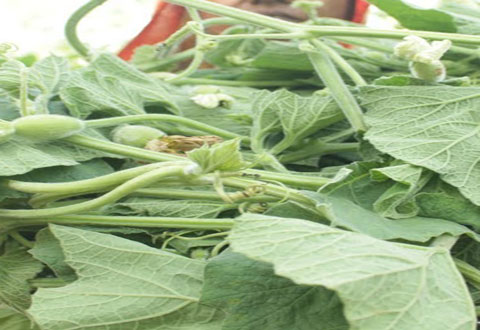
Bottle gourd tender leaves and tendrils are also edible and indeed contain higher concentrations of vitamins and minerals than its fruit.
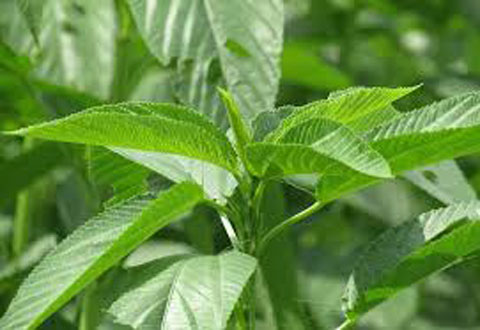
Jute leaves are said to contain iron, protein, vitamin A, C and E, thiamine, riboflavin, niacin, folate and dietary fibres.. 10. The leaves are said to have anti-inflammatory properties, which may prevent conditions like arthritis, acne, asthma, cold, et al.
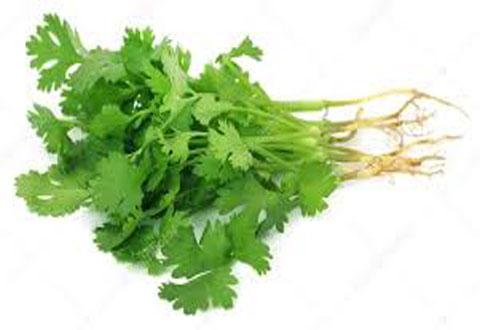
Coriander has multiple health benefits. Coriander or cilantro is a wonderful source of dietary fiber, manganese, iron and magnesium as well. In addition, coriander leaves are rich in Vitamin C, Vitamin K and protein. They also contain small amounts of calcium, phosphorous, potassium, thiamin, niacin and carotene.
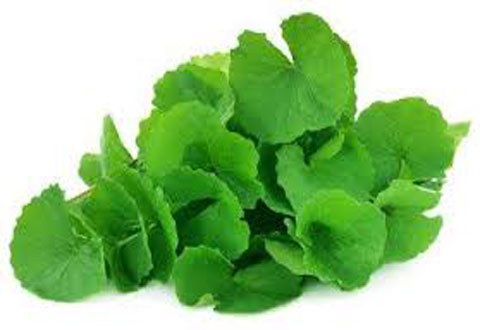
Centella asiatica aka Gotu Kola has a variety of benefits for the body. It is used to repair nervous tissue due to spinal injury, neuromuscular disorders, and to increase general brain function and memory. Gotu Kola is also used in skin treatments for a wide spectrum of skin conditions.

Dryopteris filix-mas (D. filix-mas) (L.) Schott, (Dryopteridaceae) is used in traditional medicine, particularly in the Southern parts of Nigeria for the treatment of inflammation, rheumatoid arthritis, wounds and ulcers.
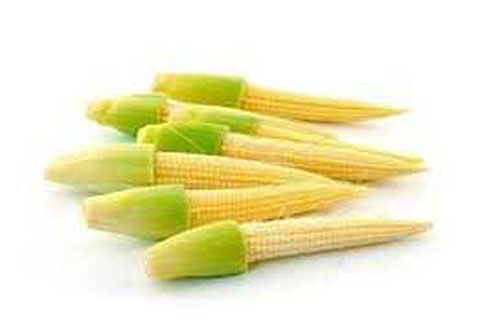
First and foremost, corn is safe for your baby, but it is best not to make it a part of the very first diet you plan for your baby while introducing him/her to solid foods. Corn contains a good amount of proteins and carbohydrates, making it great energy food, but it lacks many other nutrients.
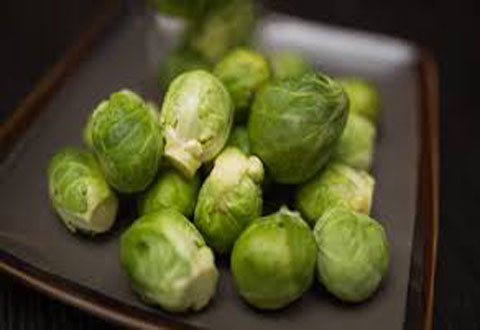
Aim instead to eat it at least once a week to reap the health benefits, says Fung. Brussels sprouts. These crunchy little green balls, which look like mini-cabbages, are nutrient-dense and low in calories — only 28 in half a cup.
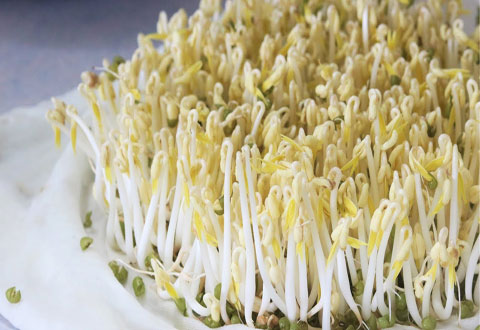
Like any fresh produce that is consumed raw or lightly cooked, sprouts can carry a risk of foodborne illness if they are contaminated. Unlike other fresh produce, the warm, moist conditions required to grow sprouts are ideal for the rapid growth of bacteria, including salmonella, listeria, and E. coli.
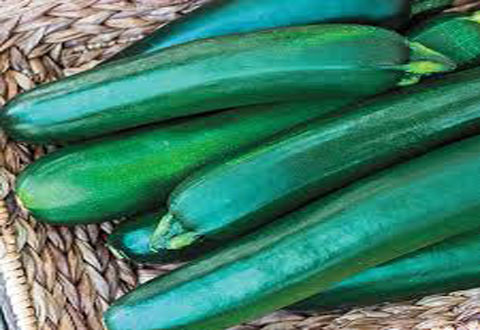
The vegetable is high in vitamins A, B6, and C, folate, magnesium, fiber, riboflavin, phosphorus, and potassium. That's a serious nutritional power-packed veggie. Yellow squash is also rich in manganese. This mineral helps to boost bone strength and helps the body's ability to process fats and carbohydrates.
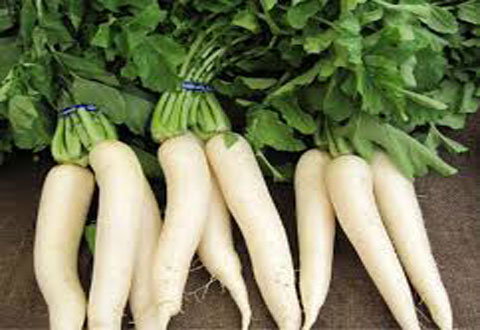
High on Nutrients: Red radishes are packed with Vitamins E, A, C, B6, and K. Plus it's high on antioxidants, fiber, zinc, potassium, phosphorous, magnesium, copper, calcium, iron and manganese. And each of these is known to keep our body in good working condition.
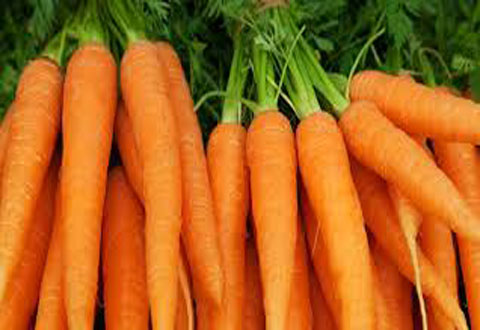
Carrots are full of vitamins, minerals and fibers that are good for your health. But eating too many carrots can bring in too much beta-carotene the molecule responsible for carrots' bright orange hue and a precursor of vitamin A. This can lead to excess blood carotene which can discolor the skin.
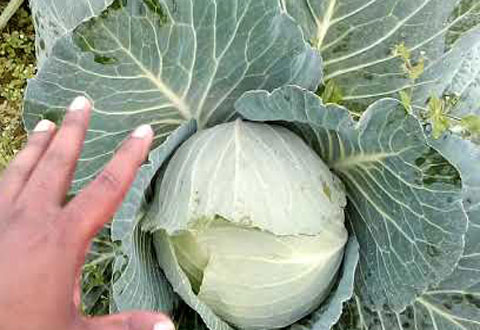
Cabbage has 1 gram of fiber for every 10 calories. That helps fill you up, so you eat less. It also keeps you regular, and it could help lower your “bad” (LDL) cholesterol and control your blood sugar. Cabbage also has nutrients that keep the lining of your stomach and intestines strong.
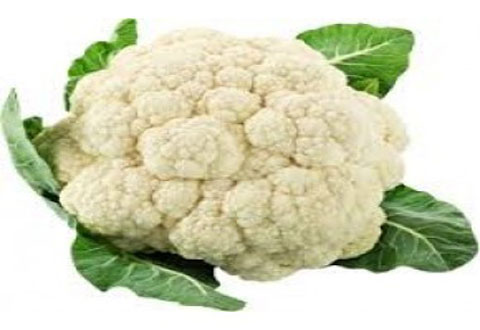
Cauliflower is considered a superfood because of its nutrient-rich content. It is high in fiber, and vitamins B and C. It also contains high concentrations of carotenoids (antioxidants) and glucosinolates.
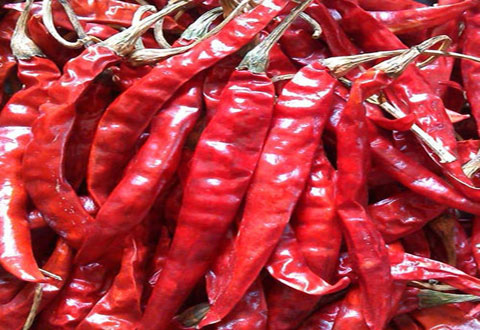
Rich source of Vitamin C: Red chillies are jam-packed with Vitamin C that helps in supporting the immune system and combat chronic diseases. Prevents heart ailments: There are very powerful antioxidants in red chilli that help in clearing blockages in blood vessels and arteries.
